A dog can be one man’s best friend and another’s worst nightmare – especially when it comes to breeds that many consider to be dangerous. 69% of the nation are self-professed dog lovers, but with America’s love for pet pooches comes the responsibility for a potentially harmful animal. The government estimates 4.5 million people are bitten by dogs every year.
41% of Americans own a pet dog, and the majority (53%) of parents with children under the age of 18 keep a family dog. Children are most at risk from dog bites, with the majority of injuries occurring in the home. Dogs are one of the nation’s favorite animal companions, meaning the issue of how to regulate potentially dangerous dogs is one that could affect millions.
Banning breeds as a solution
Certain dog breeds may be banned completely, or not regulated at all, depending on where you live in the States. Dog owners in Maumelle, Arkansas are banned from keeping any Pit Bull Terriers and other potentially vicious dogs. Any Pit Bulls in Union County, Kentucky must be registered with the state and neutered in order to satisfy legal requirements. Residents of the New York City Housing Authority are among the most regulated in the US, being prohibited from keeping breeds such as the American Terrier, English Mastiff, Korean Kindo Dog, Argentine Dogo, and more. In more rural areas, regulation is less stringent and may be non-existent.
But banning is not always the most popular option – just 23% of Americans think it is the best way to control dangerous dogs.
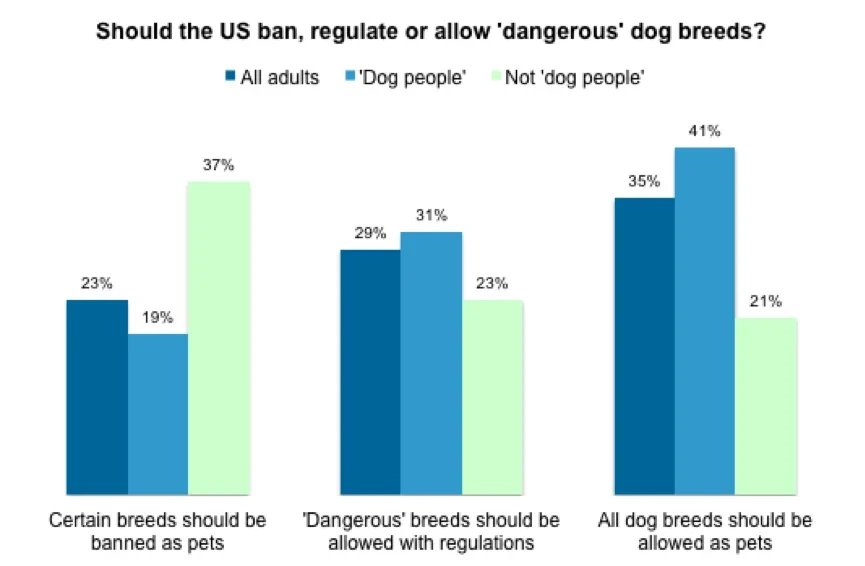
Dog lovers and older Americans are generally less willing to restrict certain breeds. YouGov has found:
- Half (51%) of 18-34 year olds believe people should be allowed to keep any dog breed they like, but only 26% aged 55 and over agree.
- Lower earners are more likely to be dog lovers, but less likely to own a dog – 70% earning under $40,000 say they are a ‘dog person’ and 37% own a pet pooch, compared with 67% of those earning $80,000 or more being ‘dog people’ and 46% owning one.
- Dog owners were less likely to support a breed ban – 16% compared with 27% of Americans who do not own a dog.
Among those who wanted to ban certain breeds completely (23% of all Americans), Pit Bulls come in at the most popular breed to ban. Among this group, 88% wanted to ban the Terrier dogs, representing one-fifth (20%) of the nation’s adult population.
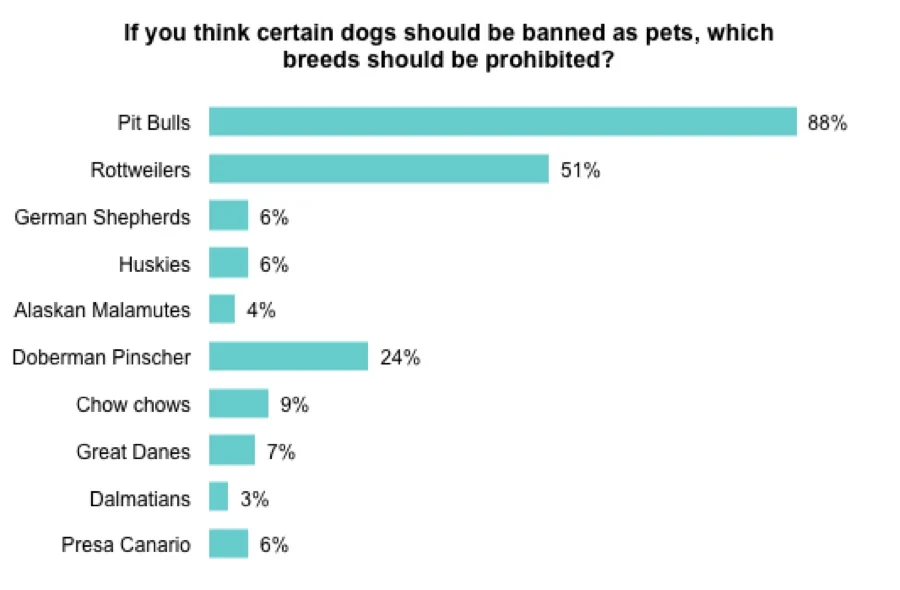
Danger: from the dog or the owner?
Most respondents (64%) did not support a complete ban on breeds, and a significant proportion of these feel it is not the animal’s fault when it comes to acting dangerously. Among those who did not support a blanket ban on certain breeds, 56% agreed that dogs are only dangerous because of their owners. This is the view of the ASPCA, which opposes breed banning in favor of reckless owner laws, such as a licensing system or mandatory micro chipping of certain breeds.
People who dislike dogs were more likely to blame the owner in the case of a badly behaved dog – 38% of non-dog lovers thought the owner was usually at fault, compared with 53% of dog lovers. Just 2% put the blame for bad behavior solely on the dog, and 38% said it could be a combination of dog and owner.
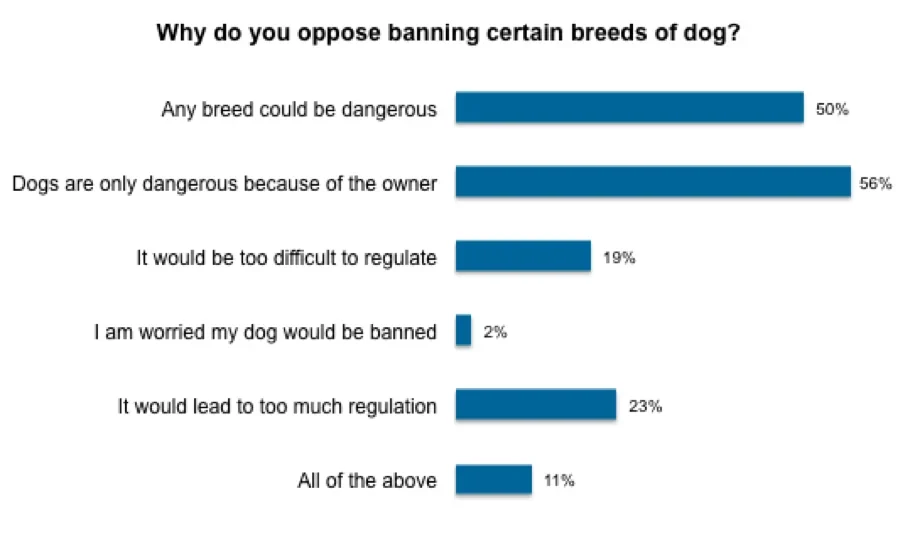
For most Americans the issue of dangerous dogs is one they do not experience first hand, as serious attacks are relatively rare. A more common problem, however, is the dog mess that can be left behind after a walk. We asked owners to confess whether they picked up after their dogs or not. 26% admitted to sometimes or even never picking up their dog’s poop – the worst offenders were younger respondents, as 37% of 18-34 year olds admitted to not always picking up after their dog.
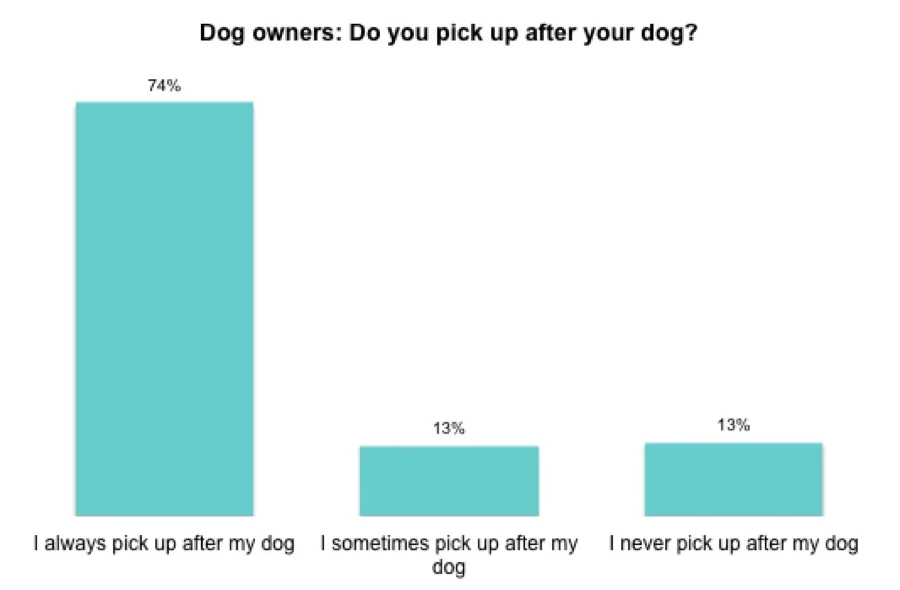
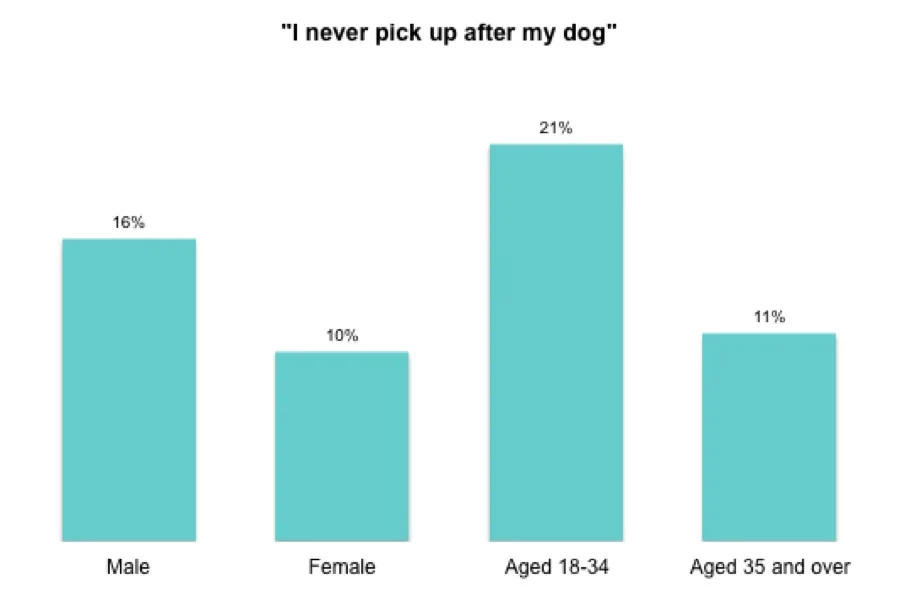
For further information about poll results, and for details about methodology and Omnibus services, please email omnibus.us@yougov.com.








